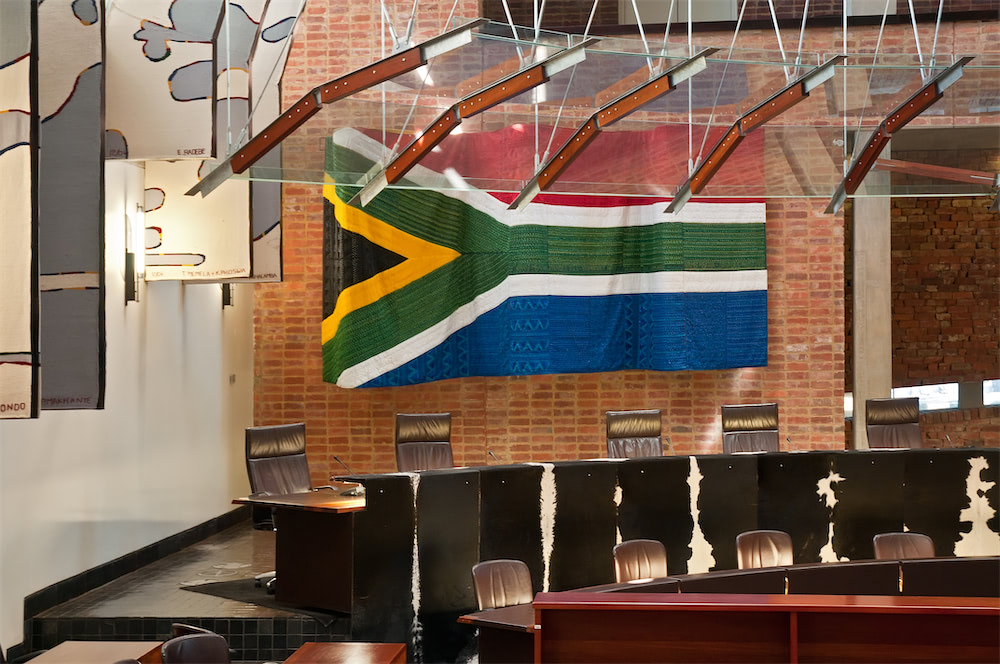

Abortion Rights in South Africa
The topic of abortion is a sensitive one. There is no doubt about it.
It always has been. Always will be.
It is not a topic that you bring up during polite conversation. We know this.
The overturning of the Roe vs Wade decision by the US Supreme Court has dredged up old memories and reopened many old wounds. Leading many to question what the Abortion Rights in the United States of America actually are. Where does the USA stand on this topic? The ruling has divided many Americans and it’s not difficult to understand why.
It has been difficult to quantify. To understand. And it has caused women around the world (and most especially in the USA) to question – Why? and How? Especially in this day and age?
But the point is - whatever your opinion on abortion is, discussing it is hard. Which is why we believe it is important to do. It is important to know the facts from fiction. It is important to know what Abortion Rights are before you express opinions on them. It’s important to be armed with the correct knowledge.
At NVDB Attorneys, when we think about knowledge, there is one person that comes to mind (especially on the topic of abortion) – the late, great Ruth Bader Ginsburg, who during her Supreme Court confirmation hearings in 1993, defended her unflinching support of abortion rights by stating –
"This is something central to a woman's life, to her dignity. It's a decision that she must make for herself. And when government controls that decision for her, she's being treated as less than a fully adult human responsible for her own choices. On the equality side of it—it is essential to women's equality with men ... that she be the decision-maker, that her choice be controlling. And that if you impose restraints that disadvantage her, you are disadvantaging her because of her sex."
And it is at this point that we now turn our attentions closer to home.
Because empowering women within our own borders is paramount.
South Africa
With the Honourable Ruth Bader Ginsburg’s powerful words in mind, when we look to our own legislation on abortion, it is not hard to see why it is considered one of the most liberal abortion laws in the world.
The Choice in Termination of Pregnancy Act 92 of 1996 (the “Act”) legalised abortion in South Africa in 1996 and it enshrines within it not only gender equality but a woman’s autonomy over her own body -
“Recognising the values of human dignity, the achievement of equality, security of the person, non-racialism and non-sexism, and the advancement of human rights and freedoms which underlie a democratic South Africa;
Recognising that the Constitution protects the right of persons to make decisions concerning reproduction and to security in and control over their bodies;
Recognising that both women and men have the right to be informed of and to have access to safe, effective, affordable and acceptable methods of fertility regulation of their choice, and that women have the right of access to appropriate health care services to ensure safe pregnancy and childbirth;
Recognising that the decision to have children is fundamental to women's physical, psychological and social health and that universal access to reproductive health care services, includes family planning and contraception, termination of pregnancy, as well as sexuality education and counselling programmes and services;
Recognising that the State has the responsibility to provide reproductive health to all, and also to provide safe conditions under which the right of choice can be exercised without fear or harm;”
This Act gives women the right to access abortion services regardless of age or marital status. Which is important to note.
The circumstances under which a women may terminate her pregnancy are set out in detail under Section 2 of the Act -
“2. (1) A pregnancy may be terminated
- upon request of a woman during the first 12 weeks of the gestation period of her pregnancy;from the 13th up to and including the 20th week of the gestation period if a medical practitioner, after consultation with the pregnant woman, is of the opinion that -
- the continued pregnancy would pose a risk of injury to the woman's physical or mental health; or ·
- there exists a substantial risk that the fetus would suffer from a severe physical or mental abnormality; or
- the pregnancy resulted from rape or incest; or
- the continued pregnancy would significantly affect the social or economic circumstances of the woman; or
- after the 20th week of the gestation period if a medical practitioner, after consultation with another medical practitioner or a registered midwife, is of the opinion that the continued pregnancy -
- would endanger the woman's life;
- would result in a severe malformation of the fetus; or
- would pose a risk of injury to the fetus.
(2) The termination of a pregnancy may only be carried out by a medical practitioner, except for a pregnancy referred to in subsection (l)(a), which may also be carried out by a registered midwife who has completed the prescribed training course.”
Breaking the above down into simple, easy to understand points -
- Any woman of any age can gain access to an abortion without providing a reason for doing so, if she is less than 13 weeks pregnant.
- If she is between 13 and 20 weeks pregnant, she can still get an abortion if:
- Her own physical or mental health is at stake;
- The baby will have severe mental or physical abnormalities;
- She is pregnant because of incest or rape;
- She will not be able to provide for the baby due to her own social or financial circumstances.
- If she is more than 20 weeks pregnant, she can only get the abortion if her or the foetus' life is in danger or there is a likelihood of severe birth defects.
In addition, at Section 3 of the Act, the Minister of Health is obliged to provide facilities where a woman can go to have an abortion.
In a News24 article titled Everything you need to know about safe abortions in South Africa in 2020, they set out the following –
“You can find your nearest local clinic and find out if they perform abortions.
They will provide you with free assistance. But not every government hospital or clinic provides abortions.
You can go to Marie Stopes which has centres across the country to help you.
They provide you with pre-procedure advice and confirm your pregnancy before making you understand all your options.
If you still choose to terminate, the nurses are trained to assist you and provide counselling.
You can also go to your GP and get it done if they are correctly trained and designated to provide the service according to Whitney Chinogwenya, Brand and Marketing Manager for Marie Stopes.
“If they are unable to provide the service; whether it is because they are untrained or unwilling to provide, they are obligated to refer the patient to someone who can,” she says.
This is the law. If a doctor cannot assist you with an abortion, they have to provide you with details for someone who can regardless of their personal feelings about the situation.”
What about consent?
The next question that inevitably arises is – what about consent of a minor?
At Section 5 (Consent), the Act sets out that pregnancy may only take place with the informed consent of the pregnant woman. Going on further to say that no consent other than that of the pregnant woman will be necessary to have an abortion.
With pregnant minors, the Act states that a medical practitioner or a registered midwife should advise the minor to consult with her parents, guardian, family members or friends before the pregnancy is terminated. But with the explicit proviso that the abortion will not be denied if the minor chooses not to consult with them.
Will Roe vs Wade have an impact on South Africa?
First and foremost, we must remember that the situation in South Africa is different to the USA.
The Roe vs Wade decision was never actually written into national law or explicitly included in the US Constitution. The Roe vs Wade decision was based on the interpretation of one of the amendments to the US Bill of Rights (specifically the 14th Amendment), which ensures all people’s right to liberty. This could include the right to privacy under which abortion fell under (according to the decision).
In South Africa we do actually have a national law that deals with the right to terminate pregnancy (as discussed above).
Therefore, the reality is, in South Africa the overturning of the Roe vs Wade decision will have little to no impact on abortion laws in South Africa.
However, there are those that fear it may “add grit to the anti-abortion mill”.
As set out in the Mail & Guardian –
“South Africa’s abortion law has been in place for more than two decades, but it hasn’t gone uncontested.
Take the African Christian Democratic Party (ACDP), for instance. The party has tried twice — in 2007 and 2017 — to roll back abortion rights using private members’ bills. Such legislation is proposed by MPs and not by a cabinet minister, as is usually the case.
Both attempts have failed, but legal experts are concerned that a sea-change in US abortion law could embolden such conservative political groups to organise around issues of abortion to gain power.
The furore may even disrupt funding flows to civil society organisations that support the right to abortion in favour of groups that have an anti-abortion agenda, says Shamillah Wilson, acting director of the advocacy group the Sexual and Reproductive Justice Coalition (SRJC).”
Conclusion
With all that said, we are of the belief that while the overturning of Roe vs Wade may indeed stir things up (as said above in the “anti-abortion mill”) the real possibility of it having an affect on a woman’s right to access abortions in South Africa, especially when it is based on the “Constitution which protects the right of persons to make decisions concerning reproduction and to security in and control over their bodies”, is highly unlikely.
To end this article, we turn to Therapy Route, which said - “The decision to have an abortion is deeply personal. Feelings of regret, unexpected grief, and other painful emotional states often follow, sometimes long after. Wherever possible, it is important to ensure the availability of sufficient ongoing emotional support.”
If you or someone close to you is going through this process, we hope you/they will find the support they need by clicking on Therapy Route’s link above.
If you have any questions on the information we have set out above or have a personal issue which you want to discuss with a suitably qualified legal professional, please do not hesitate to contact us at NVDB Attorneys.
We are a law firm that considers honesty to be core to our business. We are a law firm that will provide you with clear advice and smart strategies - always keeping your best interests at heart.




